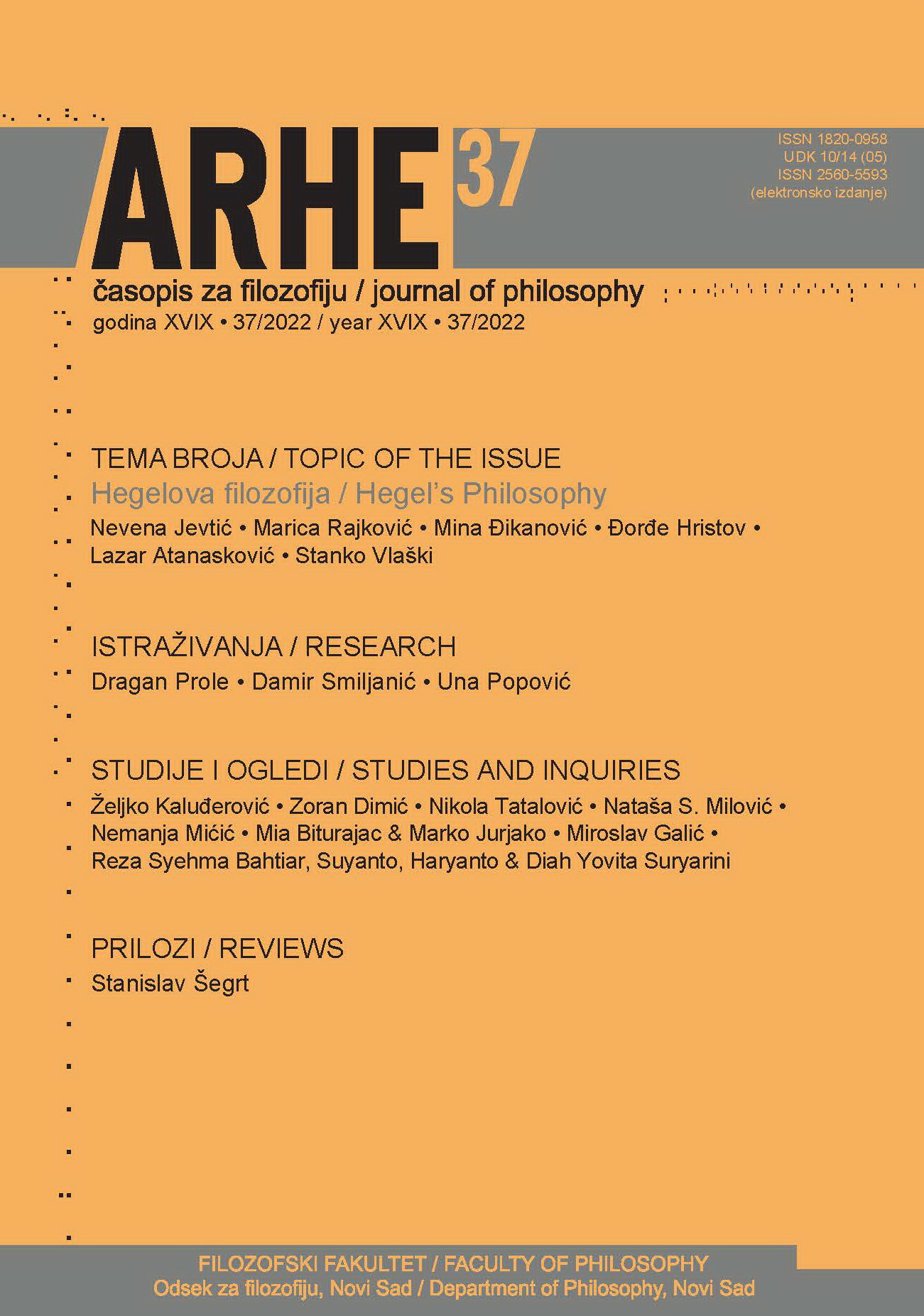Hegel i Kantova kritika metafizike
Hegel and Kant’s Critique of Metaphysics
Author(s): Stanko VlaškiSubject(s): History of Philosophy, Metaphysics, Epistemology, Logic, Ethics / Practical Philosophy, German Idealism
Published by: Филозофски факултет, Универзитет у Новом Саду
Keywords: Hegel; Kant; critique; metaphysics; logic; contradiction; thing-in-itself; ought to; concept;
Summary/Abstract: With his project of the critique of reason, Kant denies the possibility of metaphysics as the knowledge of the unconditioned, of the thing-in-itself. According to Kant, the lack of insight that the reason cannot fulfill its strivings towards the unconditioned in the theoretical field was fatal for metaphysics. Those strivings, on the contrary, primarily are the question of what ought to be and of moral action. The author considers Hegel’s attitude towards Kant’s critique of traditional metaphysics in the light of Hegel’s reception of Kant’s idea of a critique of reason, the discovery of the antinomical character of thought while it is trying to grasp the unconditioned, the thesis concerning the difference between phenomenal and noumenal world, and the thesis concerning the primacy of Sollen over Sein. For Hegel, Kant’s critique was not radical enough, because it remains tied to the metaphysically hypostasized difference between subjectivity and actuality in its central points. Unlike the other Kantian and post-Kantian thinkers, Hegel does not condition the possibility of thought to overcome standpoints of traditional metaphysics with the immediate negation of the difference between the thing as it is for the knowing subject and the thing as it is in itself, in its being. Hegel tries to show that both concepts and their difference, too, have to be thought of as the determinations of thinking itself, viz. as the actuality in its essence – as the subject.
Journal: Arhe
- Issue Year: 2022
- Issue No: 37
- Page Range: 109-134
- Page Count: 26
- Language: Serbian

